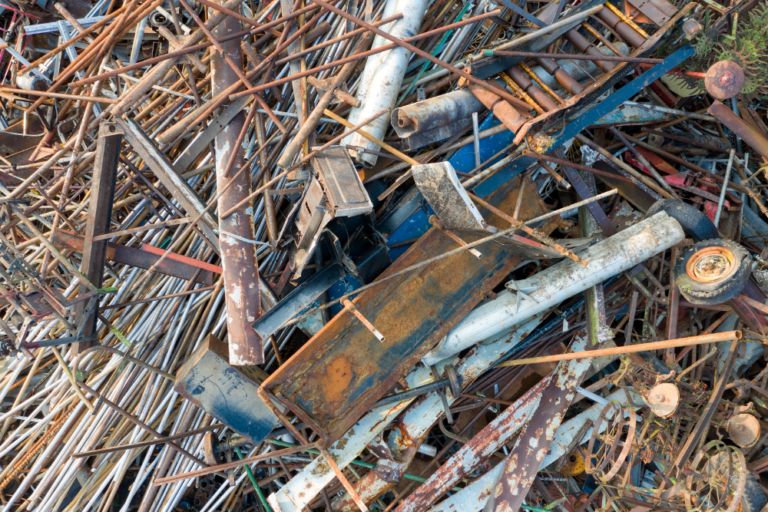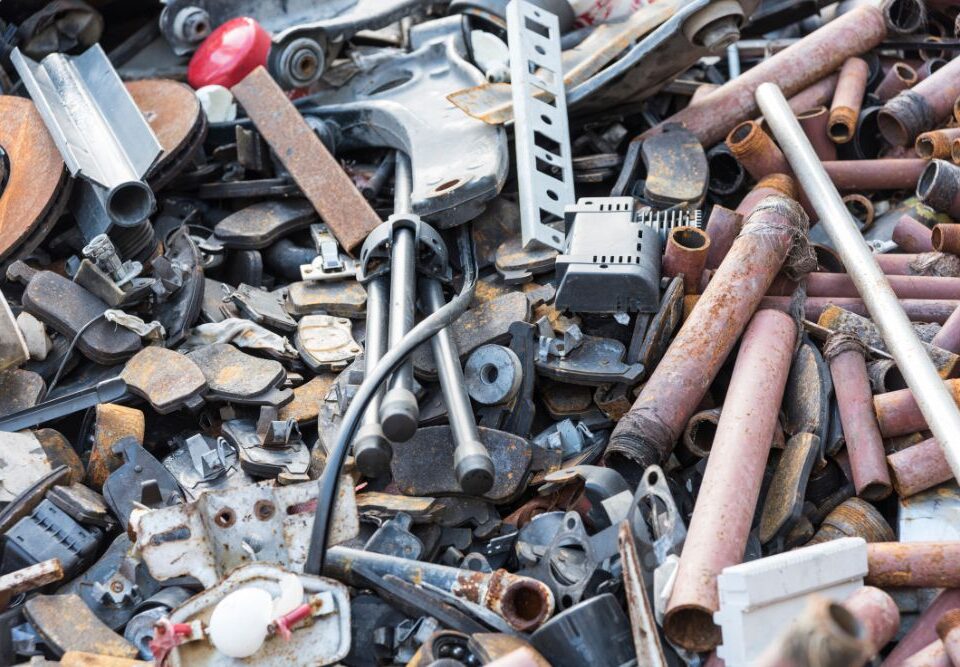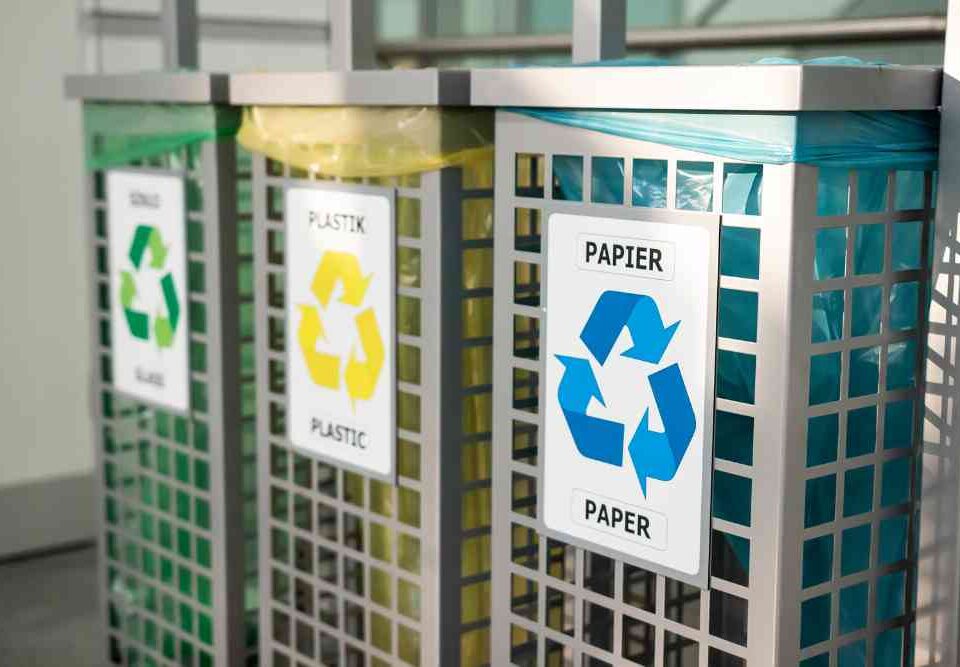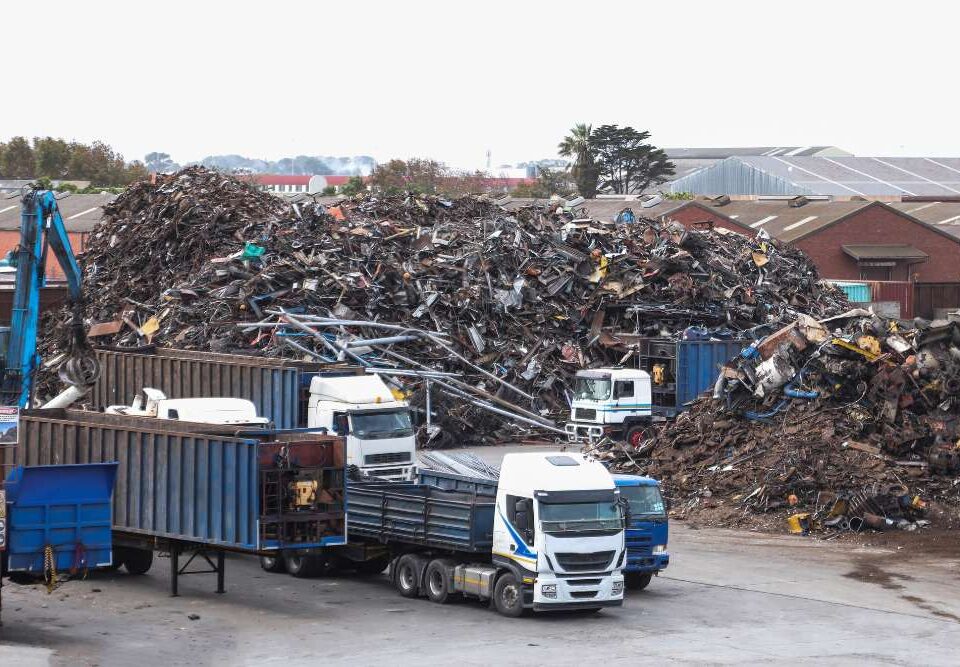
How Donation Pickup Services Can Help You Give Back
September 16, 2025
What Happens to Your Junk After
September 17, 2025How Scrap Metal Removal Contributes to Reducing Waste
Scrap metal may seem like nothing more than leftover clutter from old appliances, construction projects, or discarded household items. Yet, hidden within those piles of rusted steel, copper wires, and aluminum parts lies an opportunity to reshape how we think about waste. Scrap metal removal is more than a cleaning task; it is a powerful step toward sustainability. Every piece collected and recycled reduces the strain on landfills, cuts down on mining demands, and promotes resource conservation. By prioritizing scrap metal removal, households and businesses alike play an active role in transforming waste into reusable materials.
The environmental value of recycling scrap metal
Recycling scrap metal drastically reduces the demand for mining raw resources, a process that often disrupts ecosystems and consumes massive amounts of energy. Extracting ore not only destroys natural habitats but also contributes to water pollution and greenhouse gas emissions. Scrap metal recycling, on the other hand, turns discarded materials into usable resources without the environmental damage. It gives new life to metals already in circulation, conserving resources for future generations.
Beyond conserving natural landscapes, recycling scrap metal lessens the pressure on overflowing landfills. Metals left to decompose slowly release toxins into soil and groundwater, creating risks for communities and wildlife. Removing and recycling these materials cuts down on waste, reduces pollution, and supports a more sustainable cycle of resource use. The environmental value is undeniable, turning what once seemed like junk into an important contributor to protecting the planet.
How scrap metal removal saves energy in manufacturing
Producing new metals from raw materials demands extraordinary amounts of energy, from extracting ores to refining them for use. Recycling scrap metal requires significantly less energy, making it a more efficient and eco-friendly alternative. For example, aluminum recycling can save up to 95 percent of the energy required to create new aluminum from bauxite ore. These energy savings add up quickly, lowering carbon footprints and reducing reliance on non-renewable resources.
Scrap metal removal ensures that these materials are available for recycling plants, closing the loop between disposal and production. Every ton of recycled steel, copper, or aluminum reduces the demand for energy-intensive manufacturing. This creates a ripple effect across industries, cutting emissions and lowering production costs. By prioritizing scrap metal removal, households and businesses contribute directly to a cleaner, more efficient system that maximizes existing resources while minimizing energy waste.
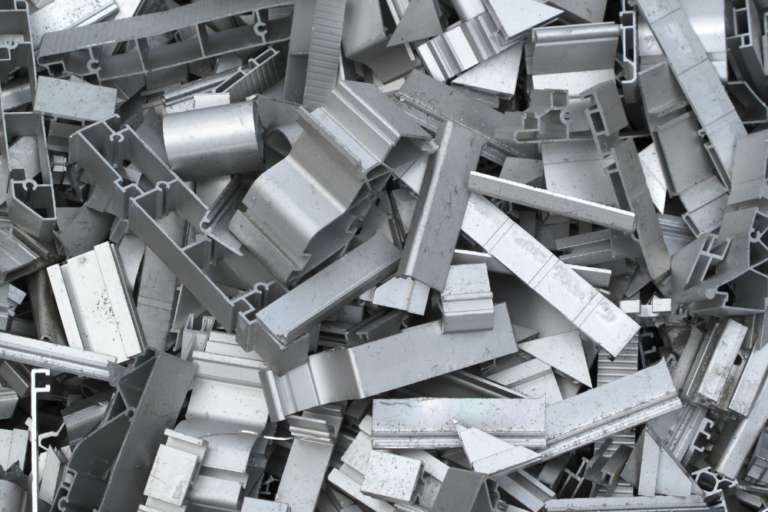
The economic benefits of reducing metal waste
Scrap metal removal is not just about environmental responsibility; it also carries economic value. Recycled metals become raw materials for industries that rely heavily on steel, aluminum, copper, and other elements. By keeping metals in circulation, recycling reduces the need for costly mining operations and lowers manufacturing expenses. These savings benefit both producers and consumers through more affordable products and reduced strain on the economy.
The recycling industry also generates jobs, from collection and processing to distribution and repurposing. Communities that prioritize scrap metal removal see both environmental and financial gains. What begins as simple waste management grows into a system that fuels local economies and creates opportunities. Households and businesses alike play a role in driving this cycle by ensuring their scrap metal does not end up in landfills. The economic benefits demonstrate how sustainability and financial growth can work hand in hand.
Scrap metal removal as a step toward cleaner communities
Communities that embrace scrap metal removal often notice cleaner streets, safer public spaces, and reduced landfill overflow. Piles of abandoned metal not only create an eyesore but also pose hazards such as sharp edges, rust, and contamination. Removing these items eliminates potential dangers and fosters healthier environments for residents. Cleaner communities naturally attract businesses and improve overall quality of life.
Beyond aesthetics, the impact reaches deeper. By recycling collected scrap metal, communities limit waste production and actively support sustainability. This reduces pollution levels, lowers greenhouse gas emissions, and creates a sense of shared responsibility. Scrap metal removal becomes more than waste management; it becomes a way for neighborhoods to showcase environmental leadership. Cleaner spaces encourage pride and awareness, sparking further participation in recycling and responsible disposal efforts.
The role of scrap metal removal in reducing landfill strain
Landfills are overflowing with materials that could have been recycled, and scrap metal is a large part of that burden. When left in these sites, metals take decades or even centuries to break down. During this time, they release harmful substances into the environment, contaminating soil and water. Removing scrap metal before it reaches landfills significantly reduces these issues and lightens the load on waste management systems.
Scrap metal removal ensures valuable resources are diverted away from unnecessary disposal and into recycling facilities where they are repurposed. This prevents waste from accumulating in areas already struggling with capacity. As landfill space becomes increasingly limited, scrap metal recycling offers a sustainable solution. Households and businesses that prioritize removal help alleviate this strain, allowing waste management systems to operate more effectively and reducing the environmental impact of excessive landfill use.
How households benefit from prioritizing scrap metal removal
Many households store old appliances, broken furniture, or unused equipment in basements or garages without realizing the risks and lost opportunities. Scrap metal removal frees up valuable living space and eliminates potential safety hazards, such as sharp edges or leaking components. By removing these items, families create cleaner and more organized environments.
The benefits extend beyond home improvement. Households that recycle their scrap metal contribute directly to reducing waste and conserving natural resources. Simple steps like scheduling a pickup or delivering items to a recycling facility transform clutter into opportunity. Scrap metal removal is an easy yet impactful way for families to engage in sustainability. It aligns personal organization with global environmental goals, ensuring that households play their part in building a healthier future.
Businesses and construction sites reducing waste with scrap metal removal
Businesses and construction projects often generate large amounts of scrap metal, from leftover steel beams to aluminum siding and copper wiring. Without proper removal, these materials can quickly pile up, creating clutter and potential safety hazards. By prioritizing scrap metal removal, companies maintain safer work environments while reducing unnecessary waste.
The recycling of these materials provides industries with valuable resources, lessening the need for new raw materials and cutting down on operational costs. For construction sites, scrap metal recycling supports green building practices and enhances environmental responsibility. Businesses also benefit from positive reputations when they actively reduce their ecological impact. Scrap metal removal transforms large-scale waste into opportunities for sustainability, efficiency, and growth. By embracing recycling practices, companies demonstrate leadership and responsibility, setting examples for others to follow while contributing to a more circular economy.
How scrap metal recycling supports innovation
Innovation thrives on the availability of materials, and recycling scrap metal ensures industries have access to essential resources. From automotive parts to electronic devices, recycled metals form the foundation for countless new technologies. By reintroducing these materials into production cycles, scrap metal recycling fuels innovation without straining the planet’s limited reserves.
Scrap metal removal creates a steady supply chain of reusable resources, lowering production costs and encouraging creative design solutions. With greater access to affordable recycled metals, industries are inspired to develop sustainable products that meet modern demands. Innovation is no longer limited by the scarcity of materials but empowered by recycling efforts. Households and businesses that prioritize scrap metal removal become part of this chain of progress, supporting advancements in technology and sustainability simultaneously.
Why education about scrap metal removal matters
Education plays a pivotal role in promoting responsible scrap metal disposal. Many households and businesses are unaware of the environmental and economic benefits recycling provides. Without this knowledge, valuable materials often end up discarded improperly, leading to wasted opportunities and increased landfill pressure. By spreading awareness, communities empower individuals to make informed choices about waste management.
When people understand the value of scrap metal removal, participation increases. Awareness campaigns, local programs, and accessible services all contribute to stronger recycling habits. Educating families, businesses, and construction teams fosters a culture of responsibility that prioritizes sustainability. Knowledge transforms actions, turning discarded metal into a resource rather than waste. With education at the forefront, scrap metal removal becomes a shared commitment to reducing waste and building a more sustainable future.
Creating long-term change through scrap metal removal habits
Scrap metal removal is not just a short-term solution; it must become a habit. Establishing routines around collection and recycling ensures that waste is consistently minimized. Whether it is a household setting aside time each year to clear out old appliances or a business integrating recycling into its operations, habits create lasting impact.
Consistency is the key to building a sustainable culture. Over time, these efforts accumulate, reducing landfill use, conserving energy, and preserving resources. Long-term change begins with small actions repeated regularly. By prioritizing scrap metal removal, households and businesses embed sustainability into daily life. This creates a culture where waste reduction is second nature rather than an afterthought. The commitment to consistent recycling ensures future generations benefit from cleaner environments and healthier communities.
Conclusion
Scrap metal removal is more than a way to clear space; it is a powerful act of environmental stewardship and resource conservation. By recycling metals, households and businesses reduce the strain on landfills, cut down on mining operations, save energy, and support economic growth. From cleaner communities to innovative industries, the benefits of responsible removal extend far beyond waste reduction. For residents in Santa Rosa, CA, North Bay Junk Removal offers professional junk removal services that make scrap metal recycling convenient and effective. Their team specializes in handling all types of metal waste, ensuring materials are responsibly processed and repurposed. To schedule a pickup or learn more about eco-friendly disposal, call North Bay Junk Removal at 707-478-6817. With expert support, reducing waste through scrap metal removal becomes a seamless process that benefits both your home and the planet. Choose responsible junk removal and take part in shaping a sustainable future.

